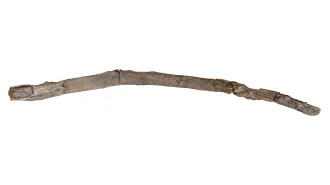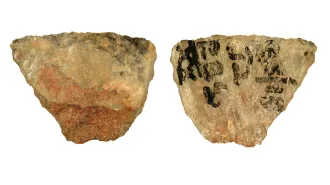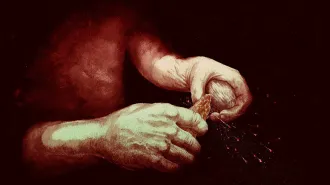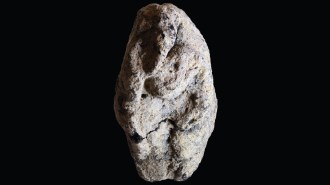A carved rock found in Jordan may be the oldest known chess piece
The 1,300-year-old game piece resembles a rook, or castle
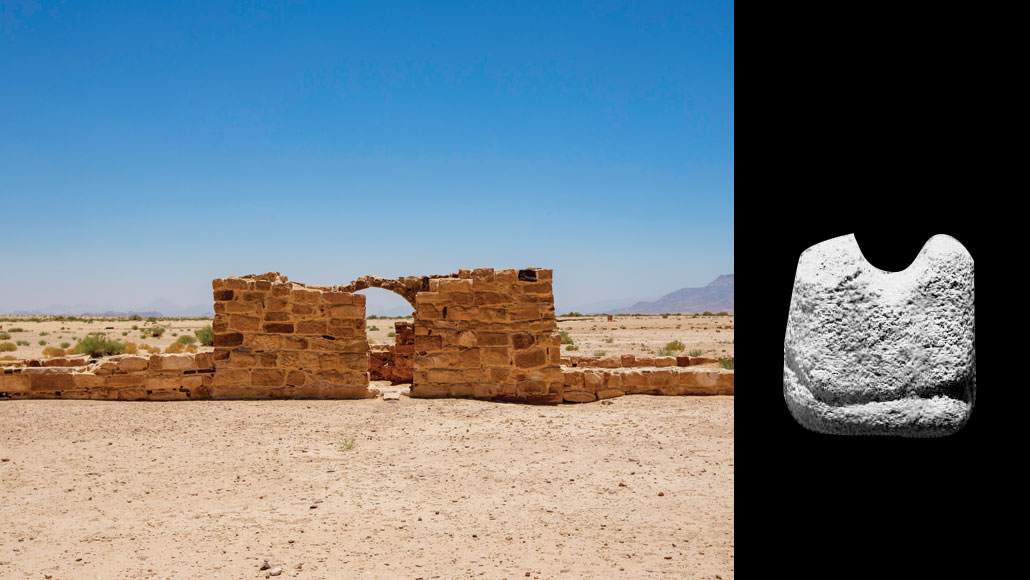
A small, rectangular stone (right), previously excavated at the Jordanian site of Humayma (shown at left), may be the oldest known chess piece, a rook dating to around 1,300 years ago.
From left: Bashar Tabbah/Wikimedia Commons (CC BY-SA 4.0); J.P. Oleson


